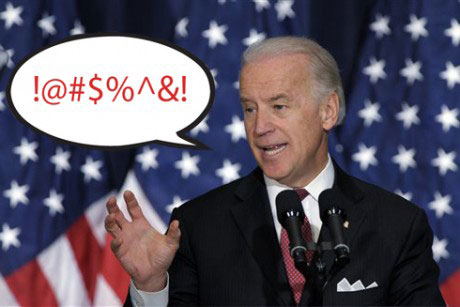A couple of weeks ago, I was able to take a break from classes to witness a speech from United States vice-president Joe Biden. While many of us may or may not agree with the policies of the current administration, a good speech is a good speech, regardless of political affiliation. In the world of writing, you may not outright see how you can be a good “speaker” in written word. However, there are many lessons we can take from good speakers in becoming a good writer. After all, a good speech has to be written by someone.
Your Day is the Best Inspiration
A majority of the good speeches I have listened to seem to start with some form of personal vocabulary. Words like, “last week I…” or “when I was growing up I…”, seem to start of many great speeches I have enjoyed. They offer a great start by having the speaker relate an experience they are best familiar with and are able to tell the best. This envelopes the reader and when relating to blogging, it offers the epitome of what blogging began as, a public page of the story of our lives.
Your Readers Are Friends Awaiting Advice
A good speech is one that your reader is able to take away something from. Instead of telling them news that they could have already received from their Google alerts, you are giving them a new perspective and allowing them to leave with what they like to call “food for thought”. If you are a technology writer like I am, instead of reporting on the latest news on Apple, tell your readers how it will affect them, why they should care, and what to look forward to from here. It will be the piece of information your readers cannot only gain from, but pass on and share (verbally and though social media). If you are a fashion blogger, instead of telling your readers the latest trends from the runway, tell them how they can incorporate it into their wardrobe and how they can afford it in their personal budget. That’s truly food for thought.

Your Writing Small Remain Endless
As I have always told novice bloggers, your writing should be something that your reader should draw a conclusion to. Ending your writing piece with a question or with an extended discussion will allow your readers to share their thoughts in a level headed way. If you attempt to draw a conclusion, you are forcing your readers to conform to a box they may not be comfortable with agreeing with. If they are uncomfortable fitting in that box, they will resist, trust me.
Your Audience is Your Best Critic
When we engage in public speaking, we all find ourselves clamming up. Our hands become sweaty, our speaking voices seem to decrease, and we aren’t as confident as before. This happens to everything, the only differences are those who know how to control it. While we all aren’t having situations, like the stuttering shown in the movie, “The King’s Speech”, we all react in our own way. Your audience will catch on to this and depending on their maturity and the severity of your slip-up, they may or may not outwardly react. One thing is drastically different with writing. When we slip up, our audience is more than excited to tell us. I can tell you that I’m not the best writer that has walked the face of this earth. I make mistakes. It’s not always about how we make them or not, but how we react. When we are called out on our stuff, we can’t take it as a personal attack. It should be taken as a lesson for the future. We aren’t perfect after all.
Which do you feel is harder? Writing for an audience online (without a cap on the possible number of viewers), or speaking in front of an audience (with a cap of 100 people)?
Disclosure: We might earn commission from qualifying purchases. The commission help keep the rest of my content free, so thank you!



